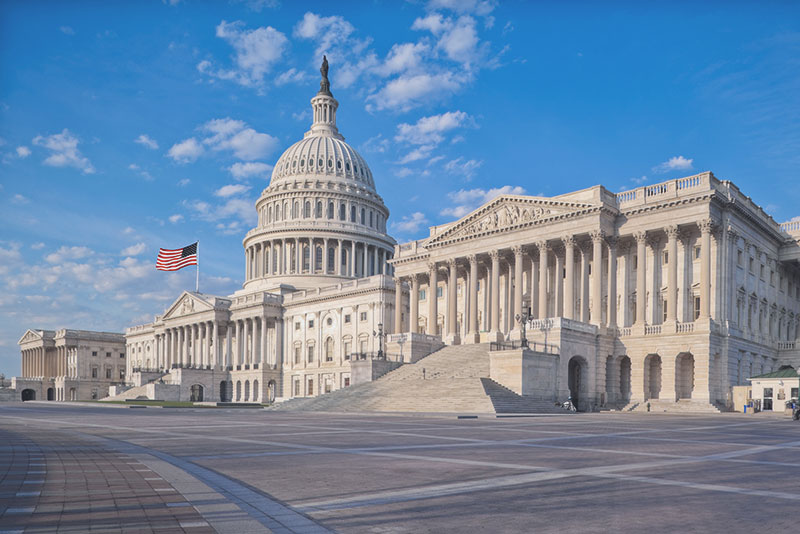How Government Agencies Can Mitigate the Risk of Open Records Request Violations
As more employees increasingly rely on digital channels to communicate, the scope of data and the types of communications that must be captured and stored to ensure compliance with open records requests and recordkeeping requirements have expanded for both the private and public sectors.
In an earlier webinar, our experts discussed how open records requests are made, how government agencies can adequately respond to such requests, the risks of not doing so, and best practices for maintaining a compliant recordkeeping strategy.
The open records landscape
The 1967 Freedom of Information Act (FOIA) requires the disclosure of records requested through an FOIA request. It is based on the idea that a transparent government is an essential part of a well-functioning democracy.
When people cannot access the information they seek about the inner workings of the government, "they start to wonder what the government is hiding," said Jeff Roberts, executive director of the Colorado Freedom of Information Coalition (CFOIC). Access to government information is crucial to maintaining and creating public trust, he said.
Across the United States, all 50 states have enacted some form of open record laws that require the public disclosure of government records. Many government agencies today have a records request portal on their websites, where public records requests can be made.
What is a public record?
Generally, a public record can consist of many things and take many forms, such as documents, papers, letters, maps, books, tapes, photographs, computer-based or generated information, or similar material prepared and maintained or received in the course of a public office or agency's operation.
The following are examples of public records:
- A text message on an agency-issued device about a decision made during a council meeting;
- An email about problems that local businesses are having with access to public water;
- A meeting minutes documents from last month's commissioner's meeting;
- Social media posts about safety services available during an extreme weather event; and
- A text message on an employee's personal mobile device about a bid awarded to a vendor.
"Whoever is taking the minutes, their notes technically are subject to open records law," Roberts said. That is something that government agencies should bear in mind.
"Ultimately, minutes are a transcript or agenda of a public meeting and are sacred to the democratic process," said Riley Lambert, senior government account executive at Smarsh.
Open record exemptions and litigation risks
As with the FOIA, certain states similarly exempt certain records from public access and disclosure, such as records that include personal information, national security matters, or law enforcement matters.
When a public records request is made, the requestor of that information has the right to ask of the government agency, "'If you are going to deny any of this request, including redaction, please cite the statute or exemption in the law that allows you to do so,'" Roberts said.
Roberts explained that if a government agency cannot or will not produce information in response to a records request or misapplies any exemptions, that can create litigation risk for that government agency. He said that various states have various mechanisms for resolving an open-records request case; some rulings are binding, while others are recommendations.
Records retention requirements for government agencies
Another important consideration is how long government agencies must keep public records to ensure compliance with certain recordkeeping requirements. Roberts explained that often, records retention requirements are determined not by public records law but by a separate statute or retention schedule adopted by the government entity itself. For example, many governments adopt the schedules promulgated by their state archivist.
Similar to the requirements for responding to a records request, recordkeeping requirements are dictated by the context of the subject matter, not the form of communication. Documents pertaining to litigation generally need to be kept longer.
Social media posts and communications made over social media channels can also be a source of confusion as to whether or not such records are exempt from open records requests or need to be archived. "Regardless of the communication channel, it's about the context of [the communication]," Lambert said. "Is it about agency business? If it is, it needs to be archived."
Impact of technology on open records
Digital communication channels are creating new challenges for government agencies, specifically regarding open records requests and recordkeeping requirements.
Common challenges include:
- Capturing data from all digital channels
- Efficient search and retrieval of data in response to open record requests
- The potentially high costs associated with these requirements
“Technology is expanding very rapidly, and it takes a lot of thought to balance the public's right to know versus the government's right to operate efficiently," Roberts said.
However, not embracing newer technologies can actually slow down operations. "There are solutions out there, like Smarsh, that can make this complicated issue less complicated," Lambert said. Certain technology solutions can assist government agencies in simplifying and streamlining the capture, archiving, and retrieval of records, for example.
Conclusion
The most important takeaway for government agencies is this: It does not matter where the relevant communication or information is stored – on a personal device, government device, in a social media post, or in what format – it's the content of the information that matters most. "If it concerns official business, then that makes it a public record," Roberts said. If the information that is the focus of an open records request does not fall under any exemptions, it falls on the government agency to appropriately respond.
Share this post!
Smarsh Blog
Our internal subject matter experts and our network of external industry experts are featured with insights into the technology and industry trends that affect your electronic communications compliance initiatives. Sign up to benefit from their deep understanding, tips and best practices regarding how your company can manage compliance risk while unlocking the business value of your communications data.
Ready to enable compliant productivity?
Join the 6,500+ customers using Smarsh to drive their business forward.




Subscribe to the Smarsh Blog Digest
Subscribe to receive a monthly digest of articles exploring regulatory updates, news, trends and best practices in electronic communications capture and archiving.
Smarsh handles information you submit to Smarsh in accordance with its Privacy Policy. By clicking "submit", you consent to Smarsh processing your information and storing it in accordance with the Privacy Policy and agree to receive communications from Smarsh and its third-party partners regarding products and services that may be of interest to you. You may withdraw your consent at any time by emailing privacy@smarsh.com.
FOLLOW US